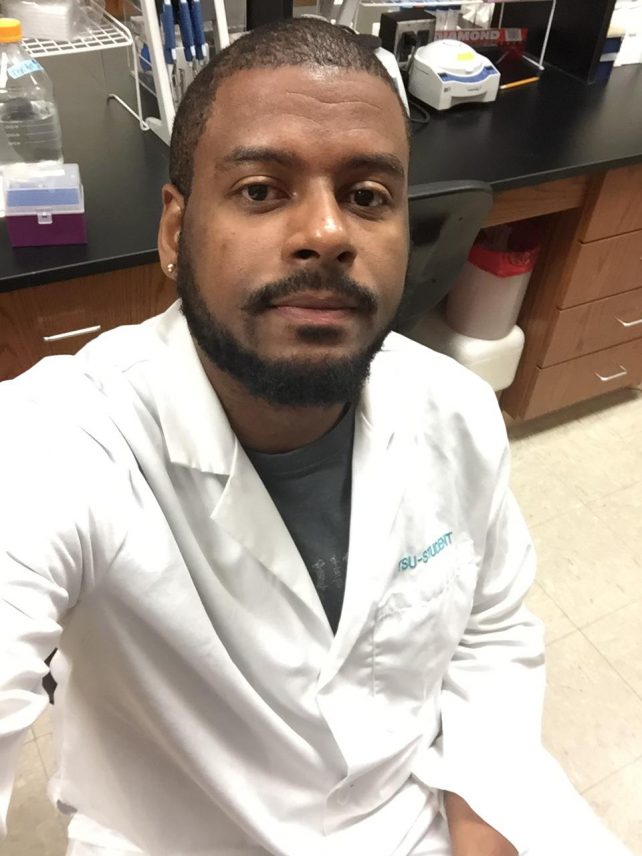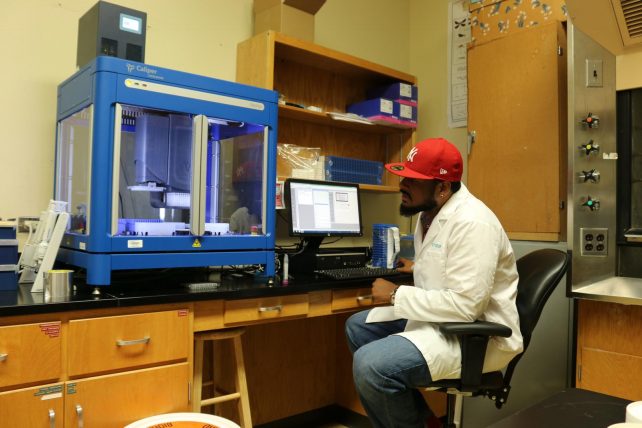
Sheldon Hilaire, a Dominican scientist and student residing in the United States, has had his work published by Ocimum Scientific Publishers in their 2019 ‘Journal of Soil and Plant Biology’.
The article, ‘Changes in Soil and Plant Microbial Community Populations Following Administration of Manure Containing Oxytetracycline or Monensin’ was written by Hilaire and his peers during his pursuit of a Master’s Degree in Environmental Science from Tarleton State University.
In an exclusive interview with Dominica News Online (DNO), the Castle Comfort-native stated that he had been “intrigued” by antibiotics since he obtained his undergraduate degree in Biology in 2011.
Hilaire then used DNA sequencing to determine whether the presence of antibiotics in dairy manure can affect the microbial communities in plants and soil set up in a greenhouse.
“I realized that over the years… society on a whole started using a lot more antibiotics—not only to treat us, humans, but we also give a lot to animals for growth promotion, for example with cattle to ensure that they are more beefed up or they produce more milk… and also mainly for disease treatment and prevention,” he said. “But a lot of times, we end up probably giving these animals more than they need, so those antibiotics, they are partially metabolized by the animals, but a lot of it ends up in their excrement. And then, of course, we know manure is a good source of nutrients for growing crops and therefore the manure containing the antibiotics is applied to cropland.”
Hilaire went on to reveal that this investigation was inspired by the farming practices used in the area in which he lived during his graduate program.
“It just so happened that the city where I was living at the time, the school had a dairy farm, and in the surrounding area, there was a lot of forage grass, so they would use the manure to fertilize [it] and then turn back around and feed it to the dairy cows… I was just kind of curious as to what are the implications of that…” the researcher stated. “This is what I used for my Master’s thesis.”
To test his theory, Hilaire used a greenhouse study involving soil, untreated manure or manure spiked with monensin or oxytetracycline (antibiotics), and grass grown for six weeks in these treatment groups.
“I collected [the] forage grass that I mentioned that was in the surroundings, and we had different treatments and we basically added some antibiotics at a specified concentration to the manure.” he explained. “We used different ways to apply the manure to the pots that we grew the grass in. Then after about six weeks, we harvested the plant material as well as the soil that they grew in, extracted and sequenced the DNA from the samples, so we could look at the microbial communities.”
According to the scientist, the results of the study revealed that there was growth of some strains of bacteria that could possibly be dangerous to humans and animals in some samples where treatment was applied.
“So what we saw is that in some cases, we definitely saw changes in the microbial community… the make-up of the bacteria in the sample, and in some instances, we had pathogenic bacteria— bacteria that can be potentially harmful to us or animals—those were able to proliferate…” he noted. “As we know, soil is good at environmental remediation, so if you have contaminants that end up in the soil, some of the activity that goes on in there should be able to break those down.
And because we kind of altered the profile, we saw that that wasn’t happening as much as it would have if nothing had been applied…” he added.
Hilaire is continuing to further his education as a PhD candidate at Virginia Polytechnic Institute and State University.


Yes, drugs that are ingested by animals and people end up back in the environment via various channels. In the US, drugs are in the municipal drinking supplies of recycled water being re-consumed by people and animals.
Congrats goes out to this young smart man. Keep doing your thing bro. Well done!!
Keep going Shelshock.
Awesome..interesting read. All the best as you continue in your studies.
Wow, like a boss! Congratulations..Dominicans got thé brain and power..Keep it moving, hope our youngsters take a page from your book and reduce the use of imported fertiliser and make do with our local stuff..